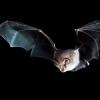Healthy people in England will be able to pay the NHS to sequence their genes, on condition they share their data.

Health Secretary Matt Hancock claimed it will help develop treatments “that will benefit everyone in the future”.
He said: “While healthy people should not have this service free on the NHS, there are huge benefits to sequencing as many genomes as we can. Every genome sequenced moves us a step closer to unlocking life-saving treatments.”
However, there are concerns. Dr Anneke Lucassen, Chair of the British Society for Genetic Medicine, said: “The NHS has always been free at the point of delivery. It has the potential to create a two-tier system.”
She added: “You can use genetic code to confirm a clinical picture, but you can’t use it to predict what will happen in the future very accurately.”
The project will be led by Genomics England, but no further details, dates or costings have been announced.
The news follows Genomics England’s successful completion of its bid to sequence 100,000 genomes in December 2018.
Image credit | iStock




